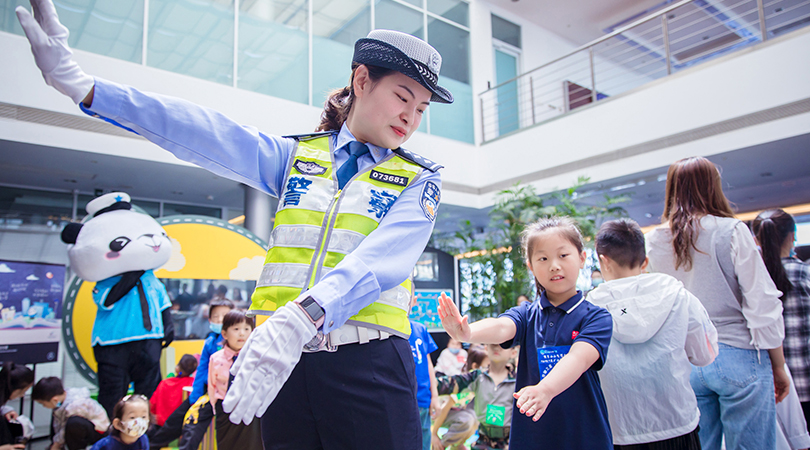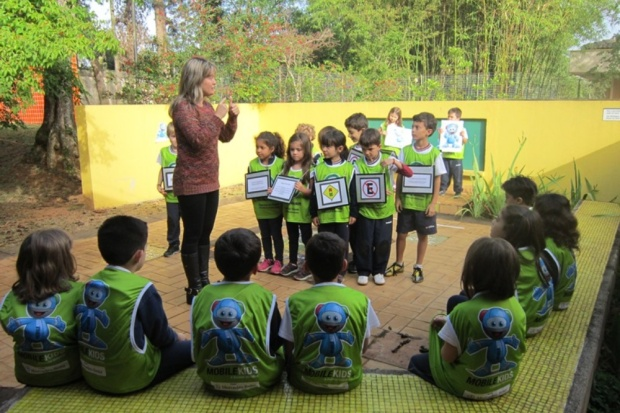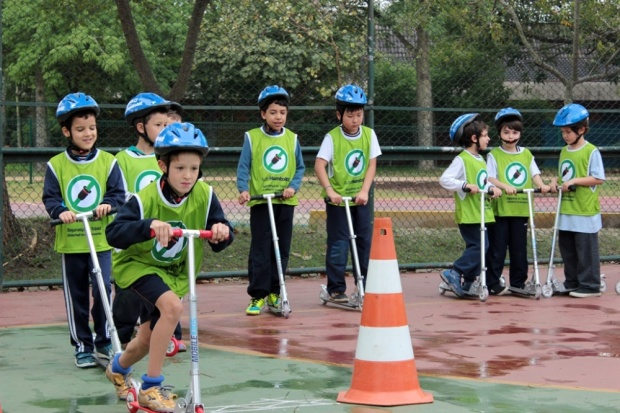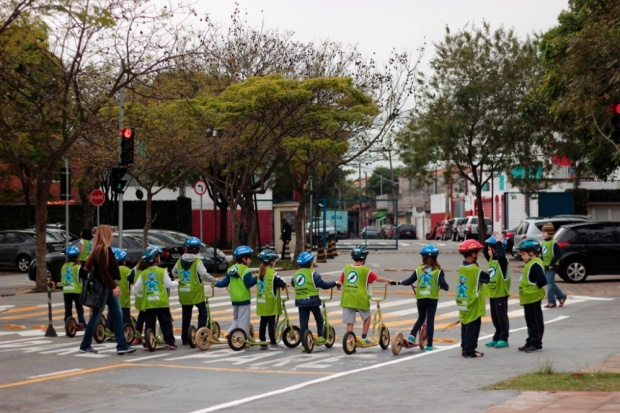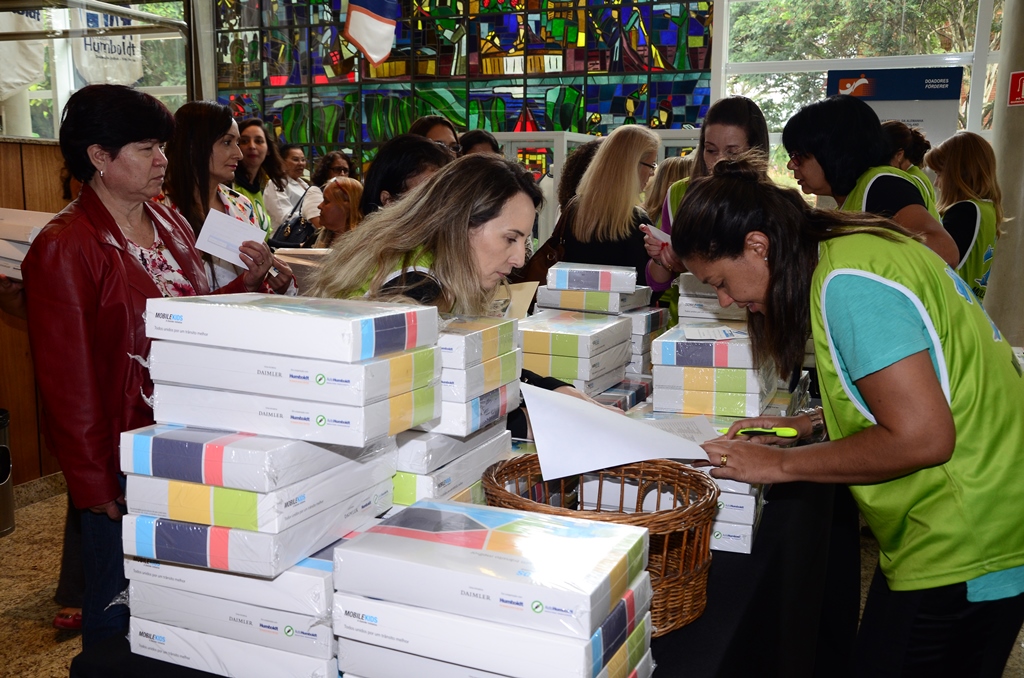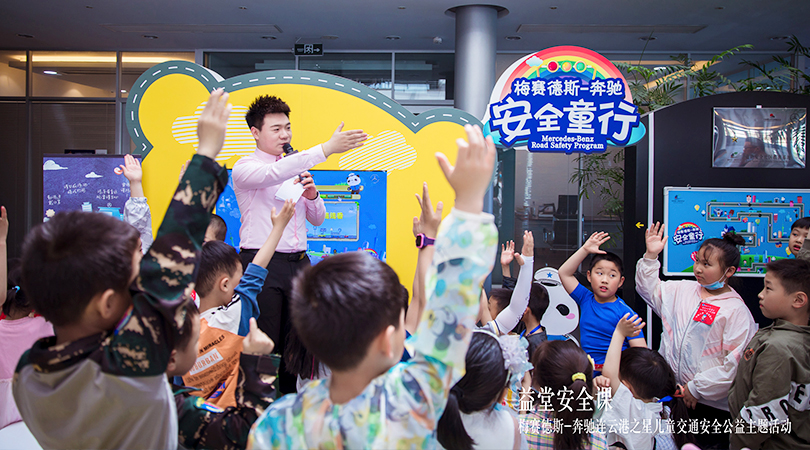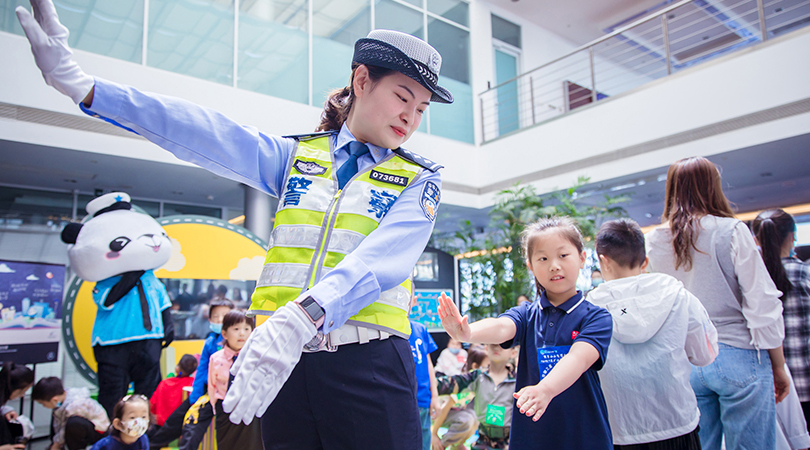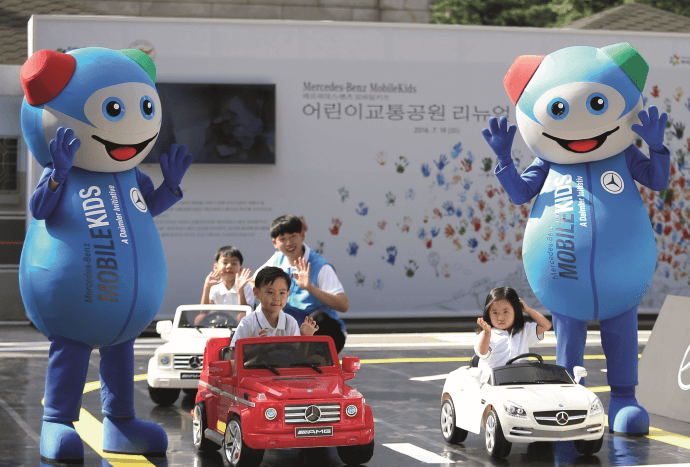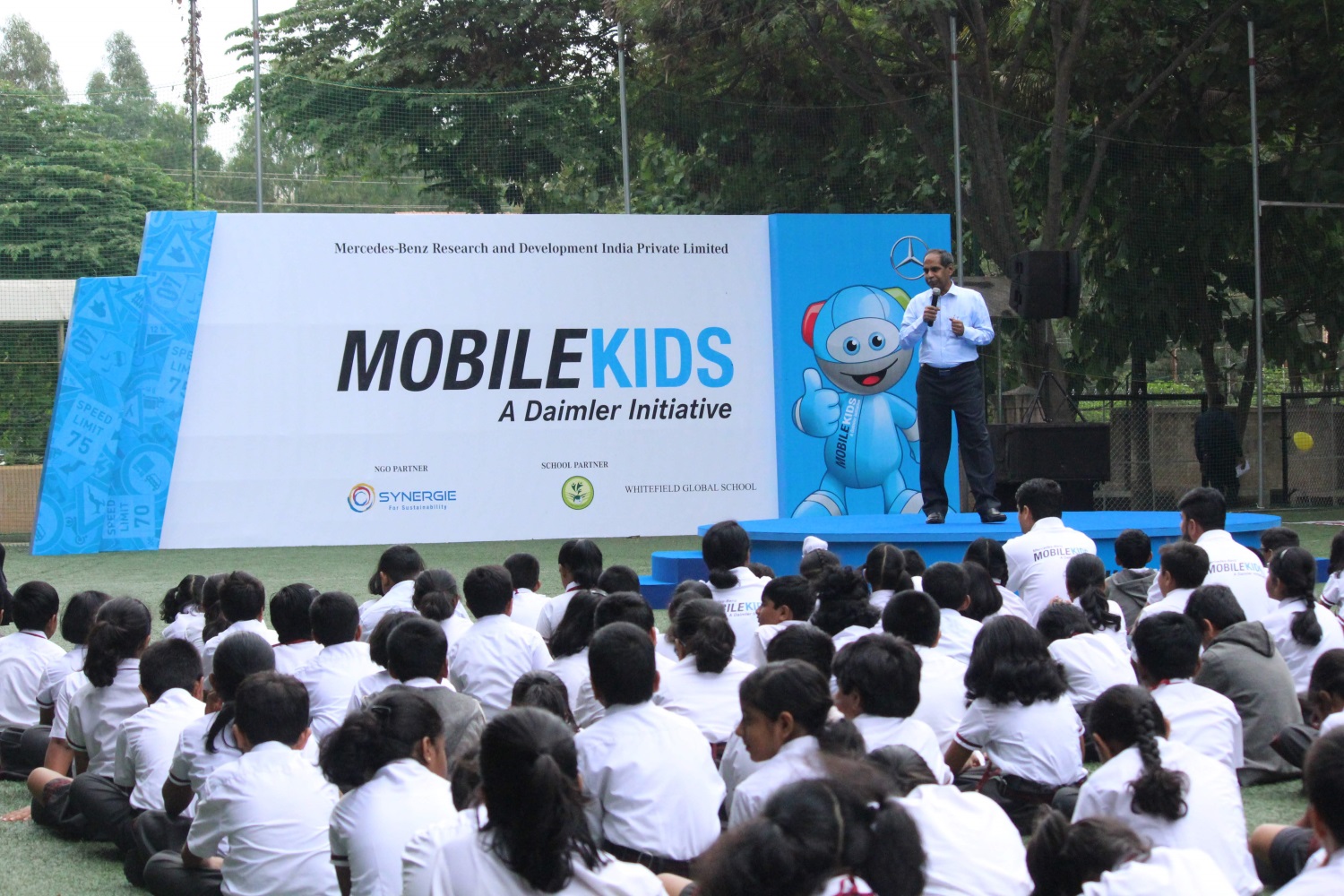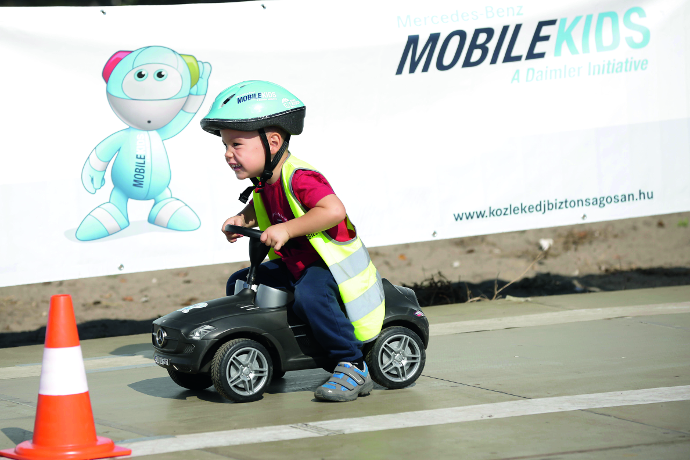We are visiting Brazil, more precisely the big city of São Paulo. With almost 12.5 million inhabitants, it is the fourth largest metropolis in the world. More people only live in Shanghai, Delhi and Tokyo. A few kilometres south of the city centre, very close to the Guarapiranga Reservoir, lies the Colégio Humboldt, a state-recognised German-Brazilian encounter school. Here, children and young people aged four to 18 are taught in both German and Portuguese. However, something else is special about the school, which is a cooperation partner of the Mercedes-Benz MobileKids road safety initiative: In addition to classical school subjects such as mathematics, German and biology, all pupils take part in a road safety education programme called "Auto Humboldt".
School car park converted into traffic training ground
The programme, which is based on the teaching and learning materials of MobileKids, aims to provide children with basic knowledge on the topic of road safety. This is to create the conditions for safe, responsible mobility when the boys and girls participate in traffic on foot, on bicycles, as passengers and - in a few years - as drivers. Over the course of several project weeks, the learning modules were gradually incorporated into the curriculum, where they are now anchored throughout the year and even serve as a template for 64 public schools from the region. With the support of Mercedes-Benz, one of the school car parks was also transformed into an elaborately designed and permanently installed traffic training ground, where the children have since been able to put their theoretical knowledge into practice in the open air.
However, children between the ages of six and ten are becoming independent road users not only in Brazil, but around the globe. From then on, the way to school, to friends or to sports training is completed independently and thus without the accompaniment of parents. It is therefore important that children are made fit for road traffic and are shown in an age-appropriate way how to behave in order to reach their destination safely. For this reason, the MobileKids road safety initiative was launched 20 years ago. Through its international presence, Mercedes-Benz has the opportunity to adapt MobileKids activities to country-specific needs and to implement them together with local partners. The company has now reached more than two million children in 15 different countries with its teaching materials in the respective national languages and individual activities.
On the road with VR goggles
In China, too, road safety education through MobileKids has long been a success story - especially the digital learning offer is very popular. For example, primary school pupils can use VR goggles to participate in road traffic from the classroom or attend live-streaming road safety courses. Only recently in early 2021 one of the streams hit 29.4 million views. And the offer goes even further: A course set up by MobileKids has been implemented in 210 urban primary schools since 2017, enabling around 260,000 students to participate to date.
MobileKids has been active in India since 2018, more specifically in the cities of Bangalore and Pune. In its first year, the road safety initiative reached 15,000 children at 100 schools with learning modules translated into the local language. The project is regularly supplemented by so-called "Special Days" in cooperation with various government agencies. The programme then includes visits to traffic centres, traffic training grounds and fire stations. In addition, an online module for road safety education is currently being developed so that the children can become real traffic professionals regardless of where they live.
Way to school without potholes
20 Indian schools were also selected as Moki pilot schools for the implementation of the project "Road safety around the school". Together with children from the schools, Mercedes-Benz employees check the traffic situation for safety in order to identify infrastructural deficits in the vicinity of the schools. Examples of this would be missing traffic signs, zebra crossings or lane reflectors, as well as potholes that make the daily way to school difficult.
In addition to Brazil, China and India, the MobileKids school material is also used by teachers for their lessons in Romania and Switzerland - here even translated into three languages. In the past, children in Poland and Hungary were also able to drive little cars in driving safety parks and practise the newly learned traffic rules. And in Seoul, South Korea, the oldest and largest children's road safety education park was reopened a few years ago after extensive modernisation and redesign, thanks to MobileKids.
Mercedes-Benz's commitment to road safety for children in the USA is still very fresh. Together with the nonprofit organisation Safe Kids Worldwide, a project day was organised for kindergarten children from the Doral Academy of Nevada in October 2021. This served to first impart theoretical knowledge to the children on the subject of road safety, before the youngsters were then allowed to put what they had learned into practice. For example, crossing the road or seeking eye contact with drivers were practised in a safe environment. Finally, each child received a learning book, a stuffed animal and a bicycle helmet of the right size. Because safety has the highest priority.


